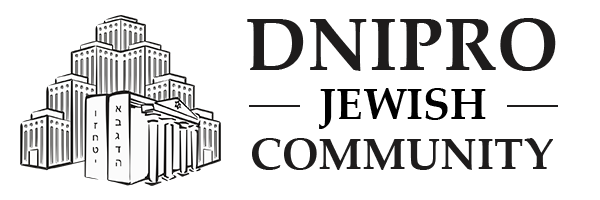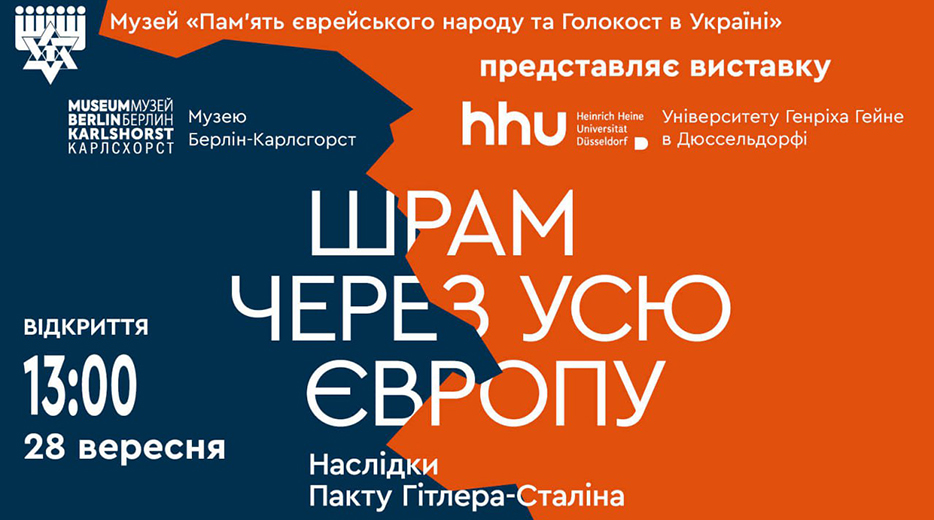The Museum “Memory of the Jewish People and the Holocaust in Ukraine” has announced the opening of the international exhibition “A Scar Across Europe: The Aftermath of the Hitler-Stalin Pact,” dedicated to one of the darkest periods of European history – August 1939. The project is a collaboration between the Museum Berlin-Karlshorst and the Department of Eastern European History at Heinrich Heine University (Düsseldorf), with support from the German Federal Commissioner for Culture and Media, the Rhineland Regional Council, the Civic University of Düsseldorf, and the Institute for the Culture and History of the Germans in Northeastern Europe.
Exhibition Opening:
Date: September 28
Time: 1:00 PM
Location: Dnipro, 4/26 Sholom-Aleichem Street, Menorah Cultural-Business Center, Museum “Memory of the Jewish People and the Holocaust in Ukraine.”
Additional information by phone: +38 050 452 21 63, +38 056 717 70 16.
Admission to the event is free.
The announcement states: “The exhibition ‘A Scar Across Europe: The Aftermath of the Hitler-Stalin Pact’ is dedicated to one of the darkest periods of European history – August 1939, when the Non-Aggression Pact between the Nazi and Soviet totalitarian regimes, known as the Molotov-Ribbentrop Pact, and its secret supplementary protocol, effectively led to the partition of Central-Eastern Europe between Nazi Germany and the USSR. The consequences of this pact left deep scars across the lands from the Baltic to the Black Sea, affecting the fates of millions of people from Estonia, Latvia, Lithuania, Poland, Romania, Ukraine, and Finland.
The biographies, archival documents, visual materials, and personal memories presented in the exhibition show visitors how the tragic events of 86 years ago, preserved in collective memory, continue to influence not only academic and public debates but also shape the present. The lessons of the 20th century are particularly relevant now – during the criminal war waged by the Russian Federation, which repeatedly emphasizes its role as the heir to Russian imperialism and Soviet totalitarianism.”




